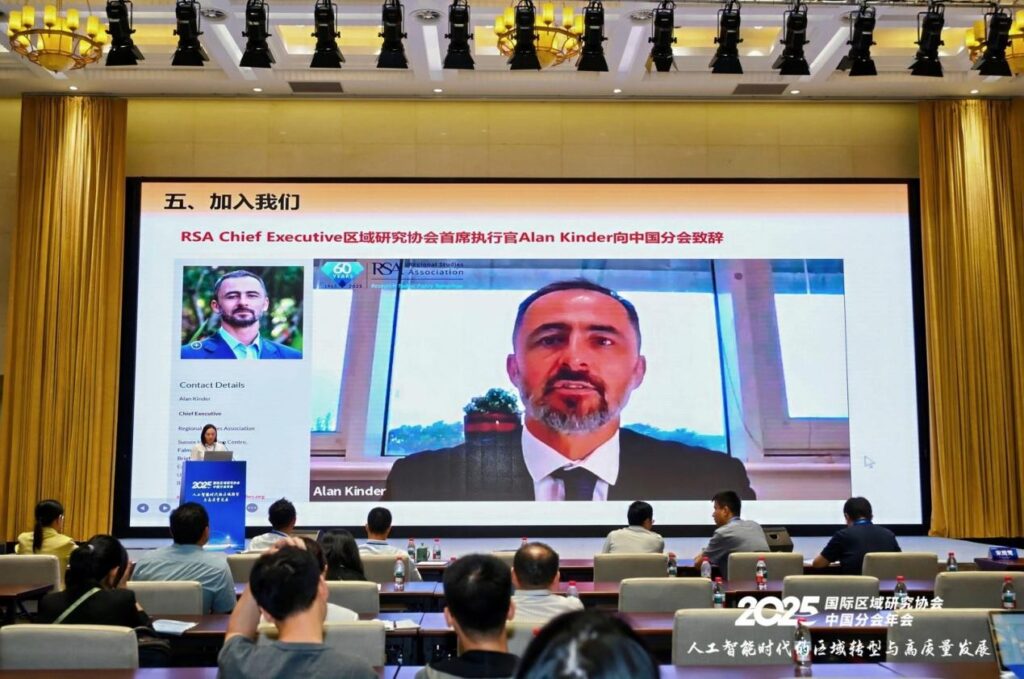The 2025 Annual Conference of the Regional Studies Association (RSA) China Division was successfully held at the College of Earth Sciences, Zhejiang University, Hangzhou, between 19–21 September 2025. The conference brought together over 180 scholars from more than 80 leading universities and institutes worldwide, including Peking University, Tsinghua University, Wuhan University, Shanghai Jiao Tong University, the University of Hong Kong, and the Chinese Academy of Sciences.
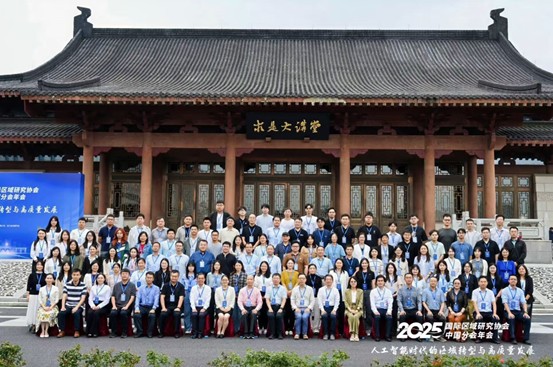
The theme of the conference was “Regional Transformation and High-Quality Development in the Age of Artificial Intelligence.” The program featured 7 keynote lectures and 11 parallel sessions covering geography, economics, management, and planning. The conference opened on 20 September, and Professor Canfei He, Chair of the RSA China Division, delivered the welcome remarks.
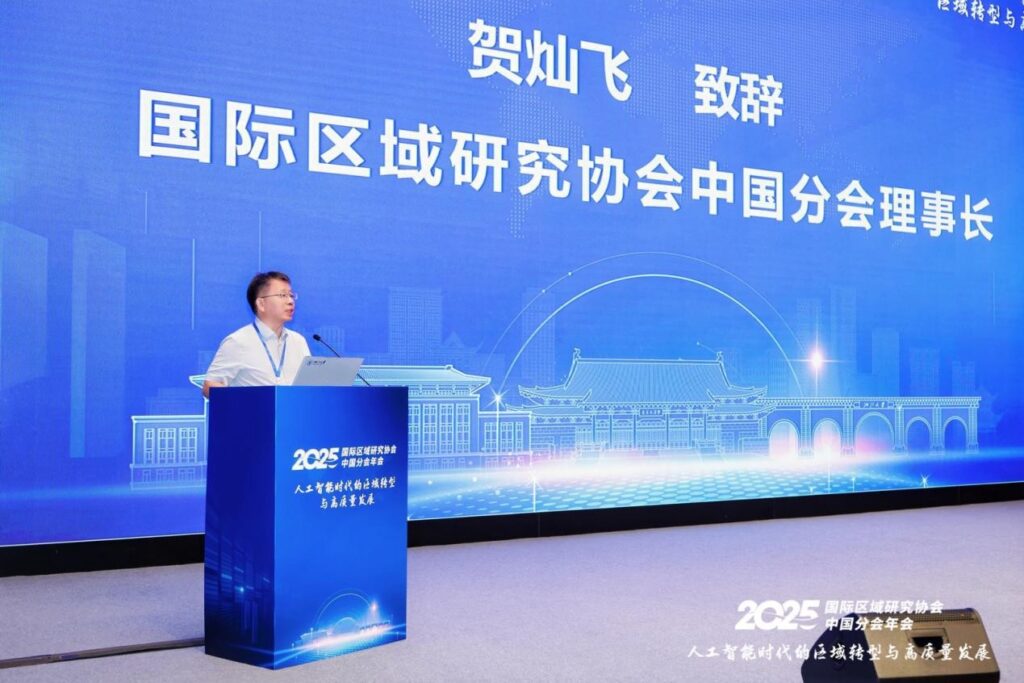
After the opening ceremony, the conference moved into the keynote lecture session. The speakers and their presentation topics were as follows:
Chusheng Lin The Dawn of the AI Age: New Challenges for Regional Studies
Lu Ming Urban Spatial Structure in the Post-Industrial Era
Canfei He Regional New Industries: Development and Evolution
Li Tian Exploring Sustainable Development and Governance of Megacities through HumanIS
Jie Chen The Impact of Land Redevelopment on Industrial Structure Upgrading in Urban China
Jiao’e Wang Geographical Interpretation and Development Index Assessment of the Low-Altitude Economy
Zhenhong Du Reflections and Practices on the Development of Geography in the AI Era
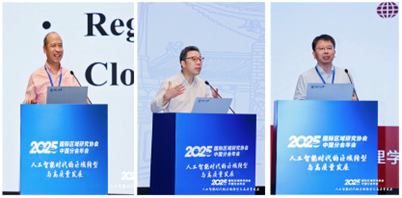
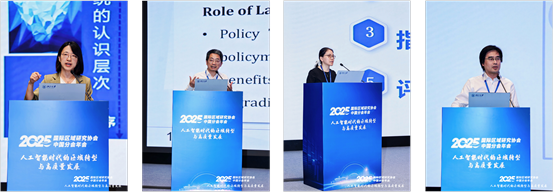
On the afternoon of 20 September, the conference moved into the parallel sessions. Topics included:
- Regional collaboration on emission reduction and sustainable development
- Infrastructure and public service provision: theories, methods, and policies
- Metropolitan transportation and land use
- Smart technologies and innovation-driven regional coordination
- Evolutionary economic geography and new pathways in China
- Enterprise innovation, industrial upgrading, and high-quality growth
- Regional digital transformation, green technology, and sustainability
- Belt and Road Initiative and regional cooperation
- Urban-rural spatial governance in the new development paradigm
- Urban regeneration and high-quality urban development
- AI Empowerment for Regional Sustainable Development
Across these eleven sessions, scholars actively shared their latest research findings. The discussions were lively and thought-provoking, with diverse perspectives colliding and converging. The sessions highlighted both the depth of academic inquiry and the vitality of scholarly exchange at the conference.
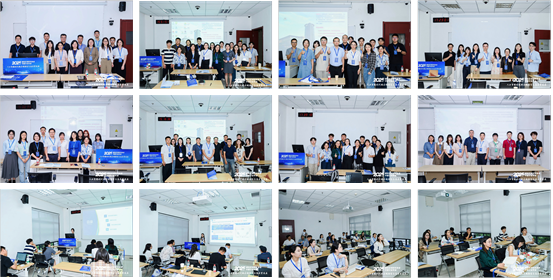
On the morning of 21 September, the conference moved into a high-level dialogue on “Disciplinary Development in the AI Era: Opportunities, Challenges, and Integration.” The discussion focused on three dimensions: reconstruction and innovation, interdisciplinarity and integration, and responsibility and the future. Participants included Wenze Yue, Yuanjing Zhang, Fenghua Pan, Shengjun Zhu, Yu Yang, Jie Huang, and Fei Fan. The dialogue reflected the depth of frontier thinking and the breadth of interdisciplinary exchange, offering valuable insights for advancing disciplinary innovation and development in the new era. The session was chaired by Prof. Chen Wang.
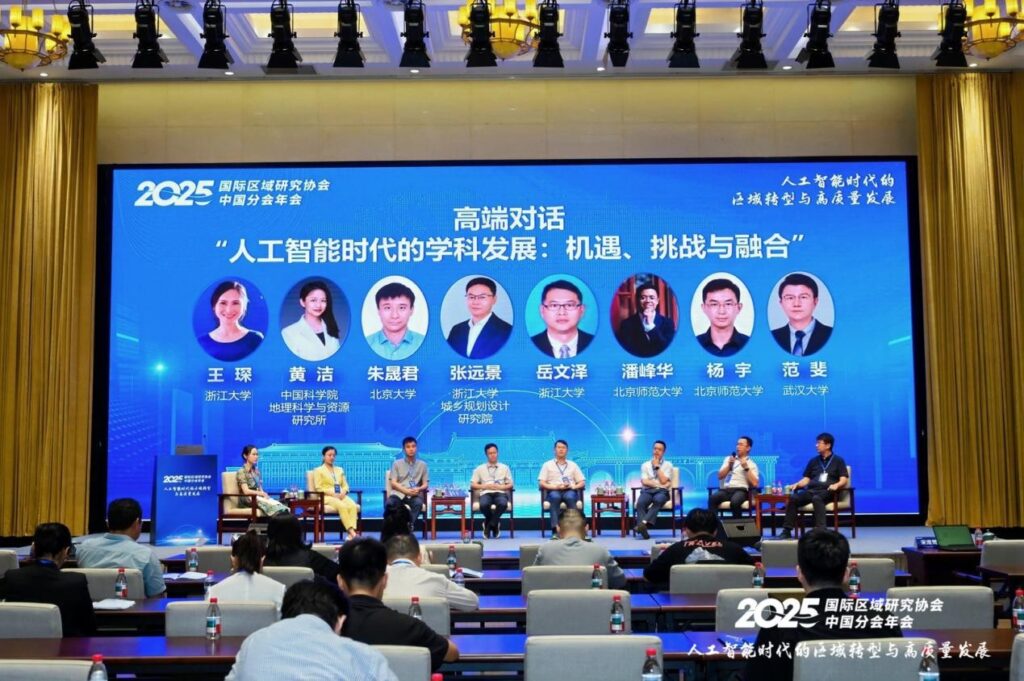
At the closing ceremony, Professor Zhouying Song, Secretary-General of the RSA China Division, introduced the development, membership, and academic activities of the Division. She invited scholars in the field of regional studies to join the association and work together to promote academic exchange and collaboration. Alan Kinder, Chief Executive of the RSA, delivered a video address to congratulate the successful conclusion of the conference.
